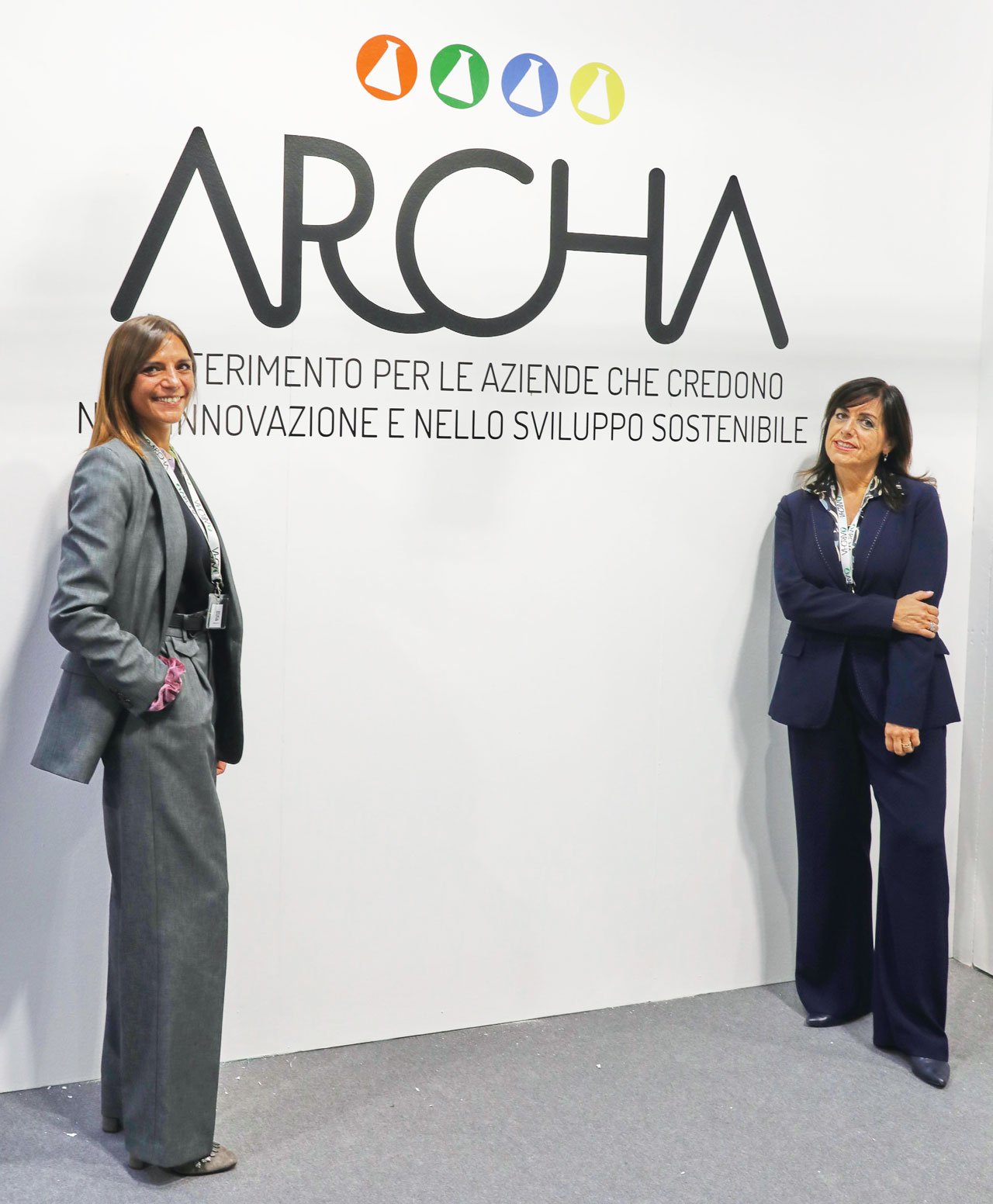A laboratory to carry out chemical analysis, R&D activities: Archa offers a scientific response to environmental issues, supporting companies in product, process and service innovation
Four differently colored glass flasks, posed at an angle that purposefully recall the Leaning Tower of Pisa, introduced the image of Archa at the latest edition of Lineapelle. The Pisa-based company, which has attended only three editions of the trade fair, actually has a long history to tell as a qualified partner for all phases of conception, research, development, start-up and industrialization of innovative, safe and eco-friendly products. Giulia Cecchi, Marketing and Communications area manager, illustrated the role of a chemical analysis laboratory created to scientifically respond to sustainability issues.
Giulia Cecchi, what is the story of Archa?
“Archa is the acronym of Analysis and Research for Applied CHemistry. We were established 33 years ago purely as a chemical and bacteriological analysis laboratory for third parties. At the time it was a futuristic project because very few people were investing in chemistry. But our mission to support growth now allows us to offer cutting-edge expertise and solutions to all companies that believe in innovation and sustainable development.”
How is the company structured?
“There are four areas of expertise of the Archa group, represented at the fair by as many colored flasks: orange (research), green (analysis), blue (technology) and yellow (training). Their slanted depiction, which was my father’s idea at the time, is a reference to the Tower of Pisa, a symbol of our territory. Archa Research – a center recognized by the MUR, the Ministry of University and Research – manages funded and non-funded research and development projects, regional, national and above all European. Working in synergy with the research area is the chemical, biological, physical and technological analysis laboratory Archa Lab. Accredited by Accredia under UNI CEI EN ISO/IEC 17043, the laboratory performs tests on various matrices and application fields. We position ourselves above all as a scientific response to the issues of sustainability and the danger of greenwashing. Through our technical analyses, in fact, we offer a service that can certify whether the product or process being implemented is objectively sustainable. Techa is an innovative medium-sized company established to develop products derived from research. For example, we develop products for textile and leather treatment and chemicals for specific applications in the tanning field, sensors for real-time monitoring of environmental impacts and processes. Through Techa we commercialize our laboratory management software called Elabora. In fact, an ICT department operates within the company that designs and develops software for 4.0 management of laboratories, environmental aspects and risks. The software allows us to conduct predictive analysis applied to the sustainability sector. For example, we can predictively assess whether the composition of the tanning product we intend to develop, may give rise to environmental issues. Finally, Archademy represents the training area of the Group. It is a training agency recognized by the Tuscany Region to deliver various services in technical, quality, environmental, and safety areas.”
What services have you developed specifically for the tanning sector?
“There are a number of activities that have already been presented that allow, as I said, scientific solutions to sustainability issues. The ongoing commitment of the tanning industry to product and process sustainability actions, has resulted in the Biodegradable Leather green and Blue Label trademarks, which attest to the biodegradability of leather or hide in compost (at least 90 percent) and wastewater (at least 80 percent), respectively. The technical specification is validated by the University of Pisa as part of scientific collaboration with the Department of Chemistry and Industrial Chemistry, and the label is issued following a quality audit verified by the Certiquality certification body. iVirty (registered trademark like the previous ones), instead, certifies the biodegradability and compostability of a finished product – such as shoes, bags, belts or garments – and therefore of all its components. The iVirty brand communicates to the market, and to the final consumer, that at the end of its life the product can be treated in such a way as not to cause damage to the environment. Furthermore, we have been performing LCA analysis for years for the assessment of the environmental impacts of products and processes and precisely for an optimal evaluation of the LCA we have developed a sensor system for real-time monitoring of some parameters of waste water and emissions. The sensor system is called SYRIO.”
Where does your know-how on biodegradability come from?
“Our know-how comes from our experience in the laboratory with biodegradability tests on different materials. We are one of the few laboratories in the world recognized by TÜV AUSTRIA for all the analyses provided for biodegradability and compostability on bioplastics according to UNI EN 13432: as a matter of fact, we boast all 5 of the analytical schemes envisaged by the institution (in addition to the Seedling credit). A field of analysis that we have extended also into leather and hides, among others (packaging, paper, cardboard, dyes, additives, etc.).”

The Archa booth at the latest edition of Lineapelle: on the left Giulia Cecchi, Marketing and Communications manager, with Valeria Bevilacqua, industrial chemist, Sales and Management Systems manager. Valeria is in charge for biodegradability analysis on leather and hides
